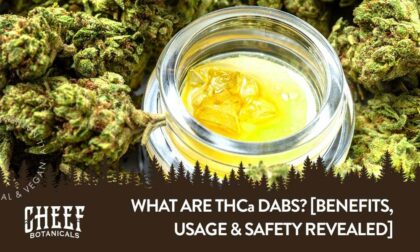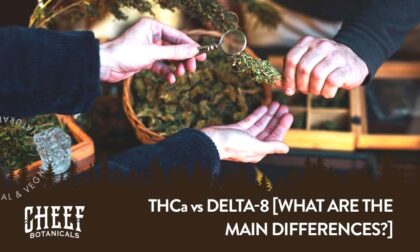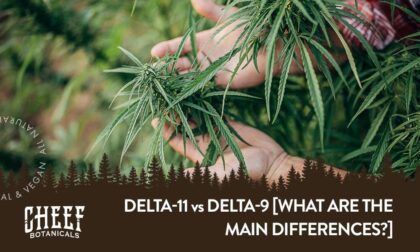How Much CBD Water Should You Drink?
CBD water is a natural, safe, and effective product that combines two substances. The benefits of water consumption are well known, whereas cannabidiol (CBD) is a newer addition to the wellness industry. CBD water should have the highest absorption rate (bioavailability) when you compare it to the other CBD applications. Unfortunately, this has not fully been proven through any human studies and thus relies on scientific research. Until the science surrounding CBD further develops, it is suggested that dosing sizes (of any CBD product) should follow the general recommended dosing guidelines. In theory, CBD water should be more effective, and therefore how much you should drink would be less. Right? Let’s look at the science and research behind these statements.
What is CBD Water?
CBD water is a combination of water and cannabidiol (CBD). In fact, it would be more accurate to describe it as “CBD-infused water”. We all know that water is everywhere. Water makes up approximately 60% of the human body and over 70% of the earth’s surface.
Water has also become a common option in the beverage aisle. In the United States, consumers buy more water than any other bottled beverage. In 2016 alone, sales within the domestic bottled water industry exceeded $16 billion!
Despite being a much newer product, CBD is also enjoying a period of explosive growth. In 2018 the domestic CBD market was estimated at an impressive $390 million. By the year 2022, even the most conservative estimates predict that it will grow 3 times larger and reach $1.3 billion.
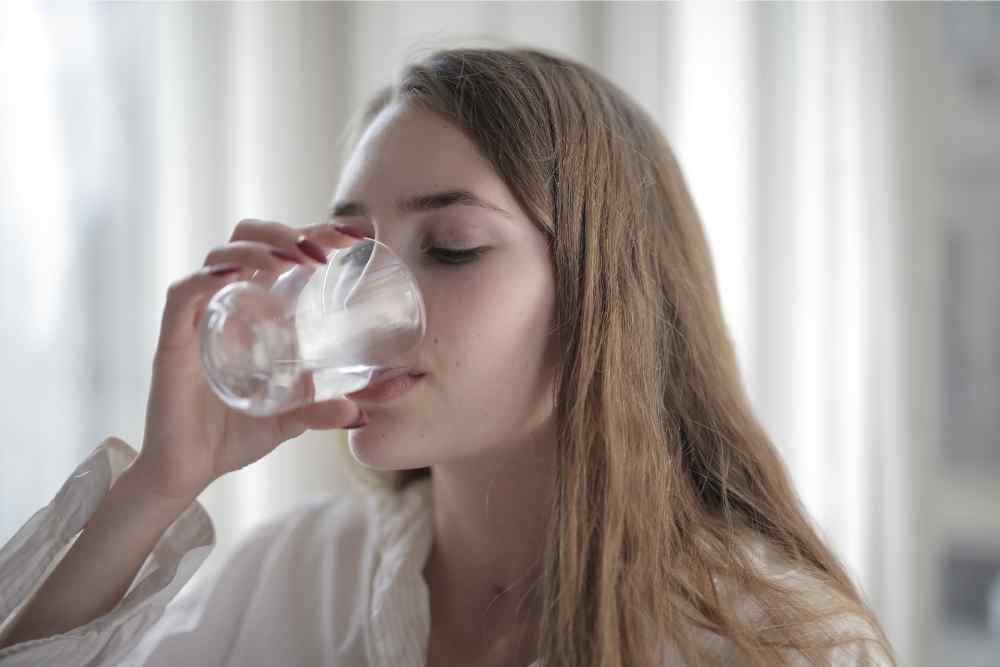
So what exactly is CBD in relation to nutrients in the body? It is an extract of industrial hemp (a legal form of the cannabis plant that contains naturally high CBD levels). CBD (Cannabidiol) belongs to a group of compounds known as cannabinoids. These cannabinoids can be broken down into two basic types:
- Endocannabinoids – These are cannabinoids which the human body creates internally.
- Phytocannabinoids – These are cannabinoids that different plants create internally, such as black pepper or the cocoa plant for example. However, the phytocannabinoid CBD is only found within the hemp (cannabis) plant.
Although CBD is a phytocannabinoid, it has the ability to interact with our endocannabinoid system (ECS). The ECS is an important set of interconnected structures within our bodies that helps to regulate:
- Sleep
- Digestion
- Appetite
- Stress
- Inflammation
- Anxiety
- Mood
Many people believe that CBD possesses multiple effects, particularly if you use it on a daily basis.
How Is It Made?
Water is, of course, that necessary liquid that makes all life possible. It is crucial for our health. We all know that it is two atoms of hydrogen that form chemical bonds with one atom of oxygen (resulting in the chemical formula H2O).
CBD oil (not to be confused with hemp oil), on the other hand, comes from the leaves, flowers, and stalks of industrial hemp plants. This extraction is achieved via a process known as CO2 extraction. The pressurized CO2 (carbon dioxide) pulls the phytocannabinoid out in its natural, oily form. This is a green, eco-friendly manufacturing process that results in a final product free of toxins or harsh chemicals.
CBD & Nanotechnology
The CBD oil must now be combined with the water to create the final product: CBD water. We all know, however, that oil and water do not mix. In general, various compounds can be either:
- Hydrophilic – Mix easily with water (the term translates to water-loving).
- Hydrophobic – Does not mix with water (the term translates to water-hating).
CBD oil is definitely hydrophobic (remember that its natural form is oil). In order to properly infuse the water with the CBD, researchers and manufacturers have developed a process that relies on molecular nanotechnology. This is a highly complex and technical process, but it essentially means that the particles of CBD are being manipulated on a molecular scale.
All this is just an elaborate way of saying that the CBD particles are made incredibly small (down to the nanolevel). In some contexts, these CBD nanoparticles may also be referred to as nano-amplified cannabinoids. This is because they use an ultrasonic processing machine that uses high pitch sound to decrease the molecular size.
Nanoparticles usually fall within the size limit of 1 to 100 nanometers. To give a size reference, the thickness of a human hair is between 80,000 and 100,000 nanometers. Some nano CBD manufacturers claim that their nano CBD measures 50-100 nanometers.
Is CBD Water More Effective?
Using molecular nanotechnology results in what is known as microparticles of CBD. These behave differently than their larger variants (known as macroparticles). To break things down in simpler terms:
- Microparticles of CBD are hydrophilic (can mix with water). This is a water-soluble particle.
- Macroparticles of CBD are hydrophobic (cannot mix with water). This is a fat-soluble particle.
Microparticles are so small that they can pass through gaps in cellular membranes (the “outer skin” of cells). Regular size CBD molecules previously could not fit into these gaps because their molecule size was too large. Cellular membranes can generally only absorb compounds that are no larger than 60 to 80 nanometers. Normal CBD molecules measure approximately 4,440 nanometers (4.44 micrometers). CBD microparticles, however, can be as small as 15 nanometers.
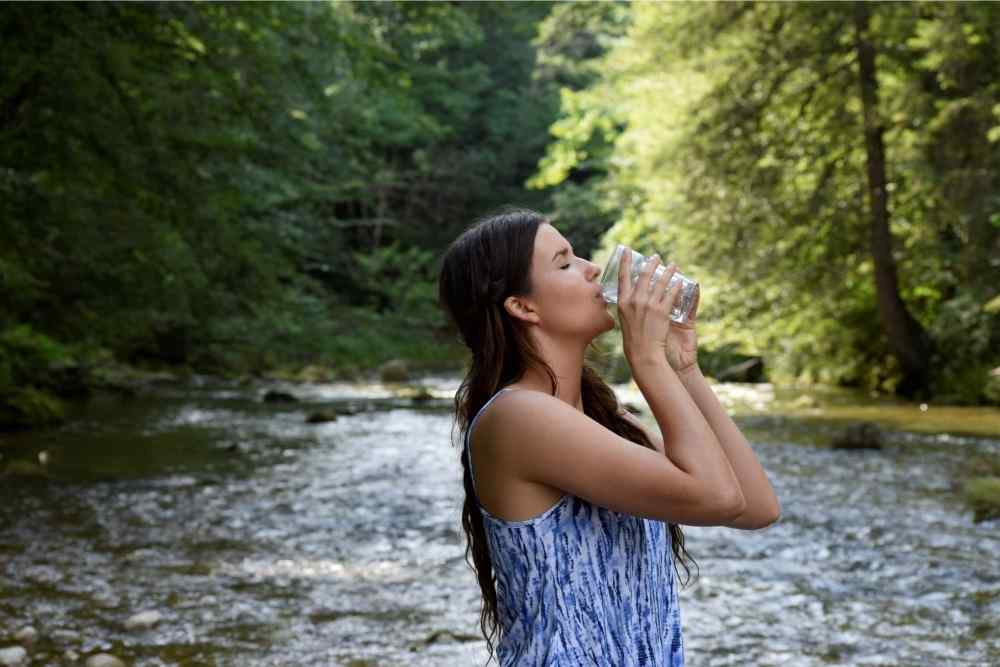
This process also makes the CBD more effective and readily absorbed by the human body. In nutrition and pharmacology, there is a concept known as bioavailability (BA). This is the rate at which a certain substance is broken down and absorbed by your body so that it can take effect.
Remember that CBD interacts with the endocannabinoid system (ECS), which has cannabinoid receptors all over the human body. This means that once the CBD absorbs into your bloodstream, it must enter the central nervous system (CNS). In order to do so, however, it must cross the blood-brain barrier (BBB).
By infusing water with CBD, your body will more easily absorb the CBD. Remember that metabolizing water-soluble compounds is different, and ultimately easier, than fat-soluble compounds. For example, fat-soluble compounds must be broken down by bile and then absorbed via the small intestine. CBD water effectively bypasses this process and increases the bioavailability of its active ingredient, reducing the amount you should drink.
How Much CBD Water Should I Drink?
Even though CBD water tastes great you do not need to replace all the water you drink with CBD water. If you did this you will not overdose but you likely will be wasting CBD by over-consuming it.
There are various opinions on how much water you should consume daily (your daily dosage). Most people follow the general guideline of the 8 x 8 rule. This means that you should consume 8 glasses containing 8 ounces of water daily. This is equal to 2 liters or 0.5 gallons of water.
On the other hand, your CBD dosage is based on your body weight and the severity of your condition. Since CBD is not fully regulated there are no official standard dosing guidelines. However, there are general dosing recommendations which the majority of people follow.
General Formulas for Recommended CBD Dosage
- Regular dose – ¼ (0.25) milligrams for every 1 pound of your body weight.
- Strong dose – ½ (0.5) milligrams for every 1 pound of your body weight.
You should apply a regular dose if your symptoms are mild to moderate or if the underlying condition is not severe. You should use a strong dose, however, if your symptoms are moderate to severe or if the underlying condition is more serious.
If you follow the guidelines then a regular dose for a person weighing 120 lbs. would be 30 mg of CBD (120 lbs x 0.25 = 30mg). If a bottle of CBD water contains 10mg of CBD, they would need to drink 3 bottles throughout the day.
You can take less or more CBD than recommended, as needed, but remember the minimum suggested dose is 15mg of CBD to be effective. Thankfully, CBD is exceptionally safe and has few side effects. It is nearly impossible to “overdose” on CBD and will generally just cause drowsiness at higher doses. There are a variety of CBD applications available to fit your needs.
It is always best to use CBD under the guidance of a licensed physician. They can help you determine what dosage is best for your particular situation as each person’s metabolism is unique. They may also monitor how the CBD interacts with any medications you may be taking so that you do not suffer any adverse effects. Read more!



